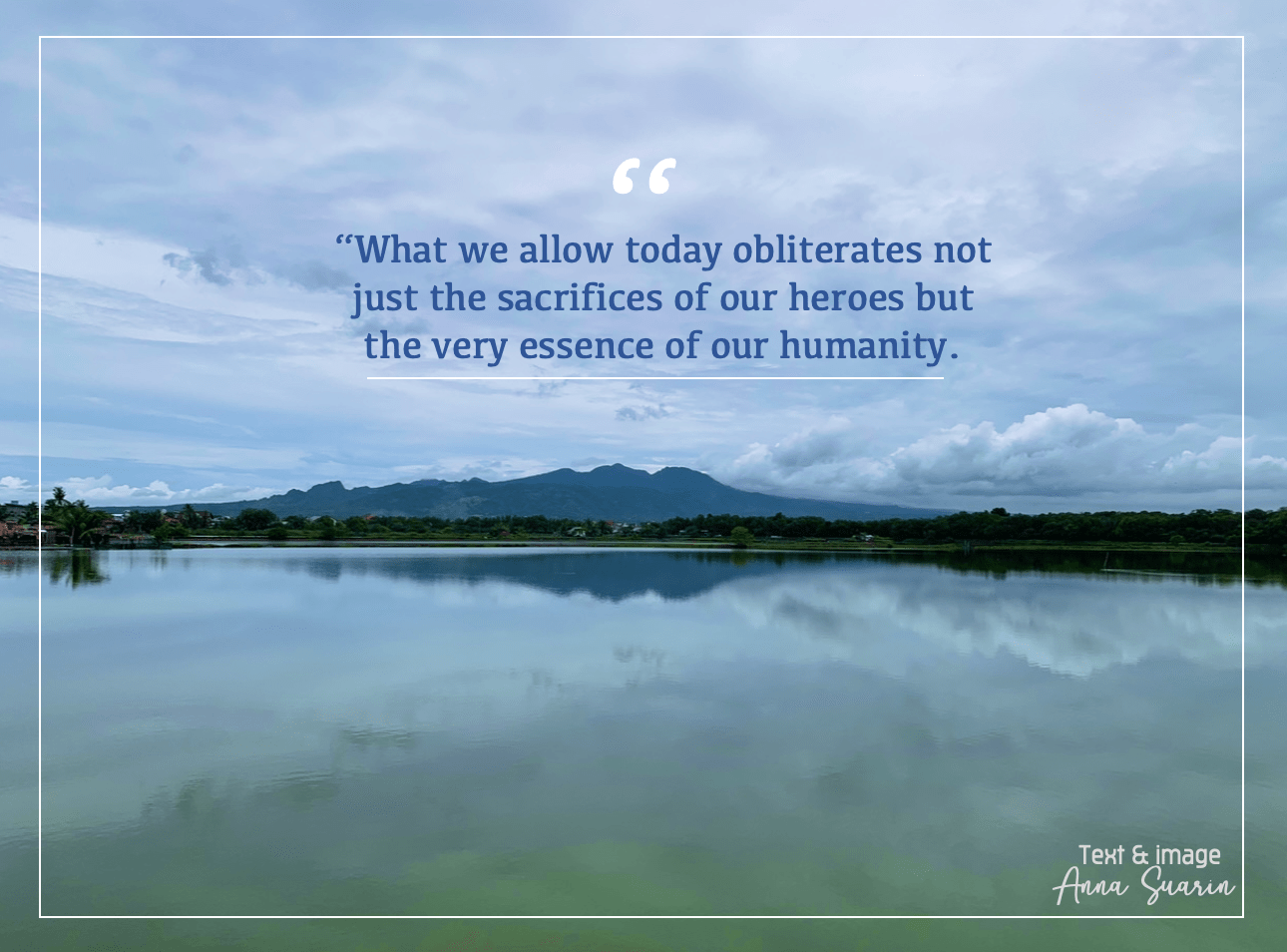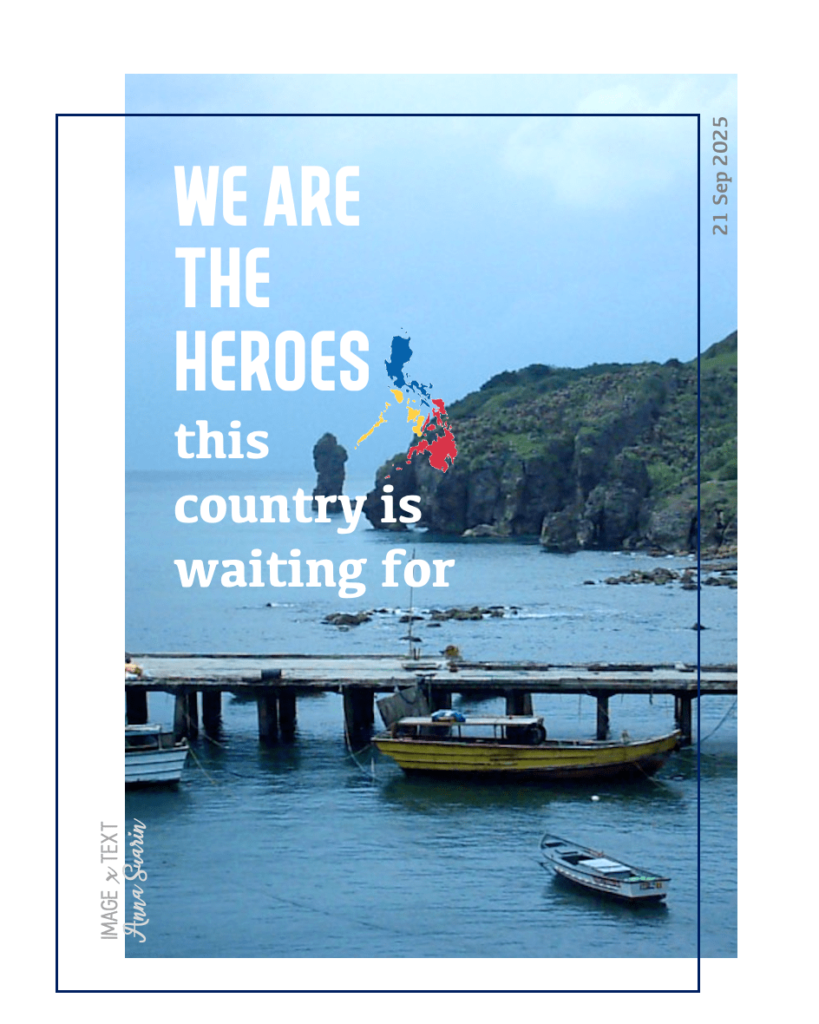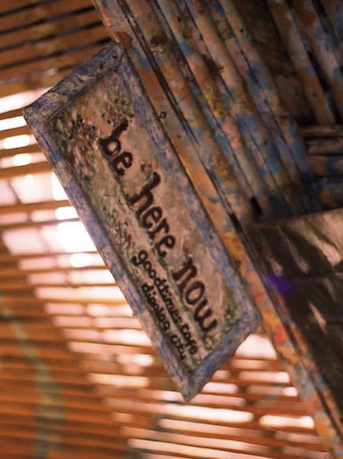
The culture of corruption and the journey toward finding our voice
SPEAK up amid the noise.
IT doesn’t matter what our political color is. Or maybe it matters if it prevents us from comprehending what is truly happening.
IT is not for anyone to say which color is better or who is saying the truth. Each one has his own biases and the evolution of one’s world views is dependent on circumstances and experiences that only him can truly grasp.
IN our journey toward the truth, we develop and conform to our values system while learning from those before us—parents, teachers, the gurus of our youth and those we looked up to as we become adults, beloved friends, strangers we meet as we pursue excellence, even enemies (or those relegated in the unfriend zone). Our laughters and tears are borne from milestones and defeats—crisscrossing our universe—allowing us quiet musings, and sometimes rage.
WE learn from the rage; just as we celebrate our victories, big or small.
AND now, we look at our own lives and choices—what have we brought upon ourselves as a nation? Sure, many of us have three sets of meals a day and roofs over our heads…really, life isn’t that bad. For the really lucky ones–Netflix movie nights, freshly ground coffee in the mornings, time for creative pursuits, and enough funds to cover a vacation or two in some exotic islands–what more could be asked for?
BUT slowly, some hard facts start to sink in. Like those diverted public funds that could have saved people, properties, and livelihood from destructive flooding. Every peso is from the toil of everyone—rich or poor. The glaring injustice is that the poor are left without any defense; not even the assurance of three decent meals a day, what more a sturdy boat to help them float with the debris and reeking stench of society’s indifference.
OH, wait. There are yachts, helicopters, and planes ready to take and fly those who have meticulously violated the rules. We can only watch. Maybe, just maybe, we pray, people will finally say, enough is enough.
WHY are we here? What has brought us here? And where are we going?

THE complexities of a society that has gone terribly wrong require deeply-seated systemic, institutional and cultural reforms. Yes, culture is part of it. It’s actually right at the core of the myriad of complexities.
WHEN people begin taking ‘small’ dishonest acts for granted. Small deal, they say; God will certainly understand. Beating the red light, paying padulas (bribe) to the traffic enforcer, not giving the change anymore kasi bente pesos lang naman (it’s only twenty pesos anyway), or simply looking the other way when a wrong is being done against another.
ALL these small things pile up and we simply watch or worse, enable it. There is a numbing effect; the pervasive culture of corruption has been welcomed with a red carpet. And while some of us genuinely strive so hard to stay clean, it has deepened the sense of apathy perhaps even callousness.
IN this kind of society, patronage politics has easily become the norm and eventually flourishes. This system allows well-intentioned ayuda (aid)-based intervention [1] to be used in buying votes. Not many question it seriously—for how can one question it if it feeds hungry stomachs for the next two or three days?
HOW can the call for deeper social consciousness defeat the urge of hunger?
BUT we forget: what we allow today obliterates not just the sacrifices of our heroes but the very essence of our humanity. The oneness with Source. The perfection of truth. And the power of choice.
THIS is right at the core of how we end up with corrupt leaders. Every time we allow them to buy our votes, we also allow them to disregard our rights and welfare. Every time we write the wrong names on the ballot, we say yes to poor governance and corruption.
THEY say, we deserve the government that we vote for. It is true. We will continue to be in these inane cycles like those lab mice that run aimlessly inside their little wheels.
WE could do better. The cycle only stops when we choose to free ourselves from fear. There is no rainbow at the end of the senseless run inside those little wheels. There could only be futility and darkness.
BUT we could live through the temporary darkness, stench, and dirt if we remember who we are and decide, enough is enough. In the pursuit of a meaningful existence—where every person could live freely without fear of hunger, persecution, and injustice—we need to be reborn, going through a painful metamorphosis.
WE are experiencing our ‘dark night of the soul’ both as a collective and as an individual. We are sovereign beings and such power is ingrained in our DNA. Do not despair. Do not lose hope. Find your voice and be brave.
FOR as we wait for the breaking of dawn, we are also comforted by the silence and strength of the Spirit.

Last month, I shared a reel through my Instagram account. I hope this piece and the reel inspire you. You can view it through this link.
Remember, you are the HERO that this country is waiting for.
[1] Certainly, cash dole-out /ayuda is needed during emergency situations and as a stop-gap measure. But it will never solve poverty nor usher a robust and sustainable growth. It also breeds political patronage, ultimately, corruption.
Containing or limiting dole-outs is important in pushing for more long-term economic strategies such as job-generation, support to SMEs, agriculture and fisheries, advancing science and technology, and the like. There is enough evidence that reveals the negative impact of dole-out systems. The experiences of countries like Nigeria, Sudan, Beirut, Myanmar, Sri Lanka, Cambodia, and Haiti, among other countries, show that no matter the significant transfer of cash, the long-term impact is just not there (adapted from R. Almendras, 2024).
In a study, Bastagli et al. (2016) report that there is strong empirical evidence of short-term impacts of cash transfer programs…but that evidence is weaker for longer-term outcomes (Coomes, n.d.). An economics professor in Drake University has also shared the same insights, backed by evidence (Henderson, 2021). Economists in Thailand similarly warned that “the government’s cash handout policies, aimed at lifting people above the poverty line, could negatively impact Thailand’s financial status in the long term (The Nation, 2024).”
Meanwhile, the ayuda allotment of P253.3-B for 2025 as well as the allocation of P319-B for 2024 are now considered the biggest ayuda component in the history of the Philippines (DBM, 2024).
Mama Earth loves you: To maintain independence, this website is self-funded and this write-up is not a commissioned work. There is no request for donation but if you can plant a tree (or two!) on your birthdays, it will really be awesome and will make Mama Earth very happy! P.s. It’s better if you could join the You’ve Got TREE-mail! Chain.




Leave a Reply